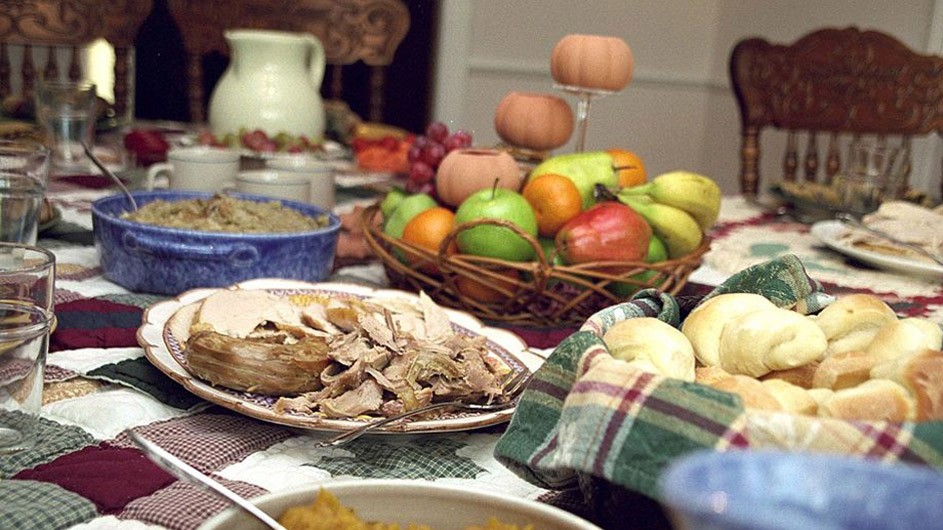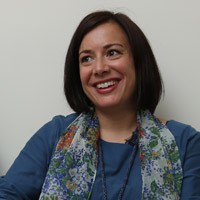A Lost and Found Thanksgiving
Recognize the loss of this year’s tradition and rituals and look for new ways to reset the holiday table.

If you’re anything like me, you may be spending more time than usual collecting snippets of wisdom from new and familiar places. It’s natural during times of uncertainty to search for guidance on what brings balance and perspective, dare I say, even equanimity in a pandemic.
Perhaps for you, too, the search process has intensified as Thanksgiving approaches along with the darkening of winter and the possibility of more quarantining and isolation.
As I stood in my kitchen the other day wondering what to make for dinner, my thoughts drifted to the larger question of what to make for, and of, our Thanksgiving gathering since it will be “just us.” On the radio Krista Tippet, the host of On Being, was interviewing Sharon Salzberg, renowned author and teacher of meditation practices, asking:
“How to keep walking forward, and even find renewal along the way, in this year of things blown apart? What sustains us? How to hold on to our sense of what is whole and true and undamaged, even in the face of loss?”
Losses and healing them. A tall order.
These days when I talk to people about the holidays, I often hear heart-breaking grief. It is a real and genuine pain. Having lost so much already and now our most beloved traditions, what will we have to look forward to? I recall Sharon saying, “the healing is in the return”—and so I will also look back.
"We all have the chance this year to turn trauma into new learning—and with that opportunity, remake our world."
This year I will creatively build our Thanksgiving rituals with the family I have available today. I will sift through my past experiences to retrieve what is precious and leave the rest behind. I am glad to be free of the less desirable aspects, such as the formality and stress, and to even add a little levity. I have always found the middle meal clunky with its oversized turkey and prefer the hors d’oeuvres and pre-meal banter. So I am excited at the chance to allow my preschoolers to assemble our smaller supper with their tiny hands.
I will take stock of what I may have wrongly believed was irretrievably lost and unrecoverable. I plan to set the table with my grandmother’s linen and put on the classic movies that always moved me—It’s a Wonderful Life, Gigi, Fiddler on the Roof—and not worry that they will feel bittersweet without my extended loved ones. I will teach the songs to the next generation and sing them out loud with feeling.
As a psychologist, I am also keenly aware that for many, holidays are painful because they were lonely or conflict filled, in any case, undesirable and unwelcome. Rather than become hardened, one can still reset the Thanksgiving table with what is life-giving and sustaining in the moment. COVID-19 has taught us that change is required for growth. We all have the chance this year to turn trauma into new learning—and with that opportunity, remake our world.
You don’t have to forget the traditions you love or think you are bereft with none. Rituals are made with what is at hand. Just look around, and gather what you have.

Aurélie Athan is a psychologist and member of the faculty at Teachers College, Columbia University, in the Clinical Psychology program and Spirituality Mind Body Institute. Her research and practice focus on the transition to motherhood and her teaching centers on adult transformative learning through ritual and symbol.
This column is editorially independent of Columbia News.